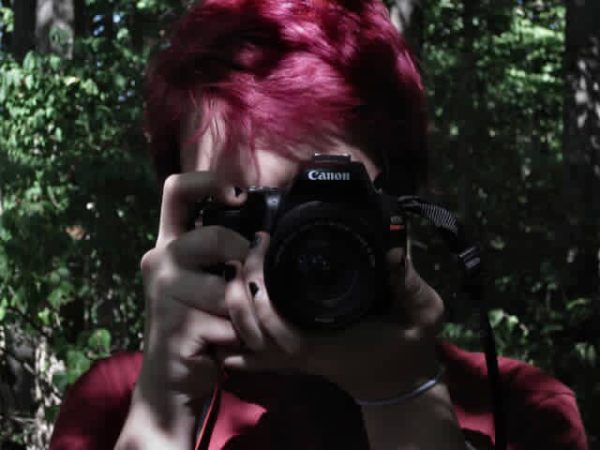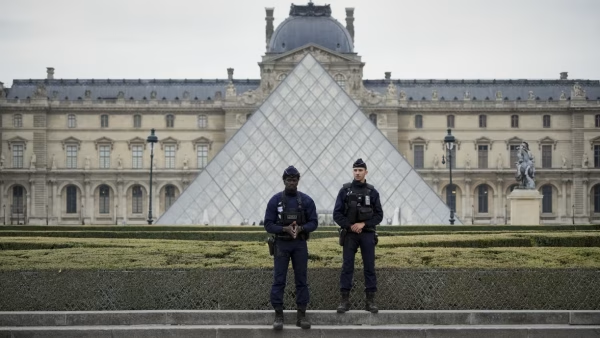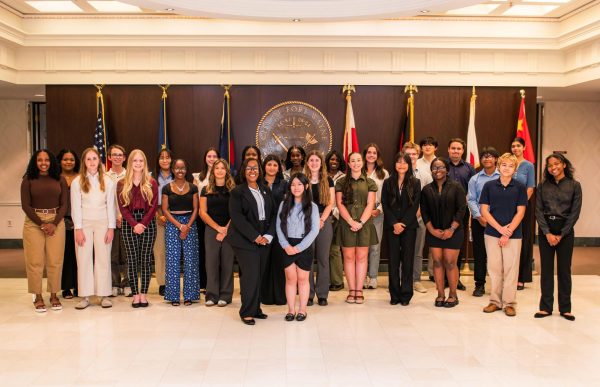Inequality, underlying issues persist
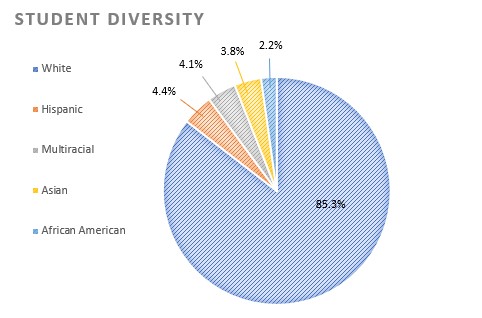
A graph showing the diversity of races in the student body
Although more than 80% of students feel happy at this school, homophobia, racism, sexism and transphobia are large issues, creating tension and an unwelcoming environment for some students.
One student shared their experience with an ongoing issue of basic human rights being neglected.
“Human rights as a whole have been seen as an opinion, or a choice of who deserves human rights and equality, but in reality everyone deserves to be accepted, loved, and respected despite their differences from others,” said sophomore Reese Wilkins.
Wilkins also pointed to her experiences with homophobia.
“Nothing terribly traumatic, which I’m very thankful for. Just self-doubt and the idea that I am broken because of whom I love, or the idea that I can be changed,” she said.
Wilkins is not alone in her experience with homophobia. An anonymous sophomore shared their views on homophobia and the LGBTQ+ community.
“Something I feel has been normalized especially in modern day would be how poorly LGBTQ+ kids are treated. For a school that claims to be open-minded and accepting, the people that attend here are not that,” they said.
Talk of people getting upset at teachers for showing support, transphobic conversations, and other instances of homophobia are reported to be happening around the school, creating a harmful environment for LGBTQ+ youth.
Speaking out about their personal experiences, the student said, “Hearing my friends make jokes and say these awful things and then tell me ‘But you’re one of the good ones’ is a little bit dehumanizing in a way.”
Homophobia is also present in other areas, such as online. Many people try to justify their homophobia by using religion as an excuse, such as when people quote certain sections of religious books and interpret said sections to fit their opinions.
“It shouldn’t be acceptable to disagree with someone’s existence or the traits they were born with,” said senior Dominic Cardenas.
On the topic of online homophobia, online bullying is also large issue in today’s society. According to a 2015 National School Climate Survey by GLSEN, over 60% of teenagers online have witnessed online bullying. According to a different organization, The Children’s Society, over half of all LGBTQ+ young adults have been bullied online.
Bullying takes many forms and can lead to drastic actions on the victim’s part. Some victims have taken their own lives, had to start therapy, or developed mental disorders. One form of bullying is racist jokes.
85.3% of students at Carroll are white, and 12% have been described as closed-minded, so it’s no wonder that some students here make unkind jokes.
For the other 14.7%, being bullied or made fun for their skin color can be a regular occurrence.
“People find them funny when in reality, they’re not,” said senior Ohinoiyi Monoh. “In order to preserve your friendships, you have to let them slide. It’s like being reminded that you are different from the majority of white students on a daily basis, for 3 out of 7 periods in the day.”
Some students choose to try to justify their jokes or bullying by providing excuses, as one student talked about.
“A lot of people will pardon their jokes by saying, ‘Oh, that’s just my opinion’, as if that is an excuse for hatred,” said junior Jerra Mabey.
“We are also so quick to assume the worst in each other and about each other, and in a lot of political or social conflicts we refuse to recognize that the other person might genuinely not know as much about a topic as you do,” said Mabey. “On the flipside we might also need to recognize that we, ourselves, aren’t informed enough.”
Arguments stem from two or more conflicting sides of an issue, and often in the heat of anger or annoyance people don’t stop to think about how others might feel about the topic, or how informed they are about it.
“Approaching things with kindness and respect (instead of a closed-off “you vs. me” position) can help a lot. This position of course shouldn’t be used if it isn’t safe to use it- sometimes when we’re aggressive, we’re protective,” said Mabey. “I’ve noticed when I tried stepping back and genuinely asking someone I disagreed with (strongly) why they thought that way, and gave them space to explain, we both resolved the issue in a way that was better for everyone involved.”
“I just mostly think the world could use a little more kindness here and there instead of open and active hatred,” said Mabey.
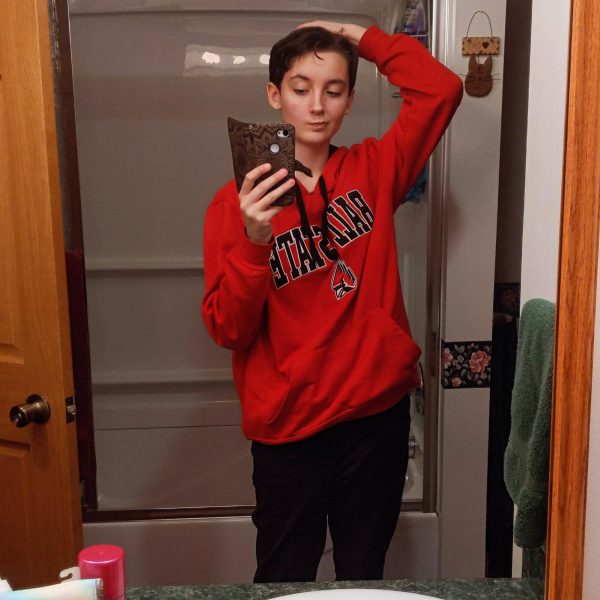
Hi, my name is Jack, and I'm a senior. I'm a writer on the Charger Online, a songwriter, and a person who's too fruity for homophobes to handle. I'm also...

